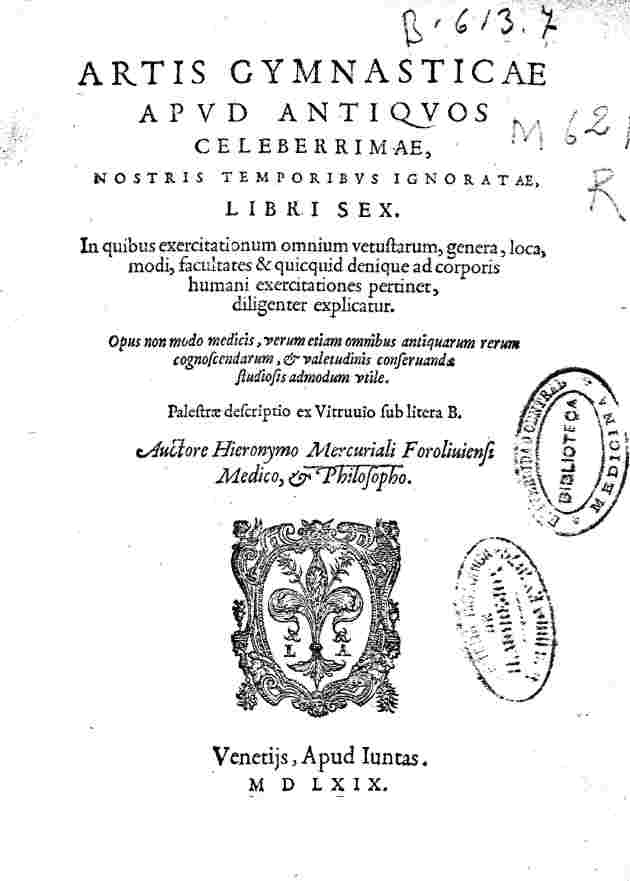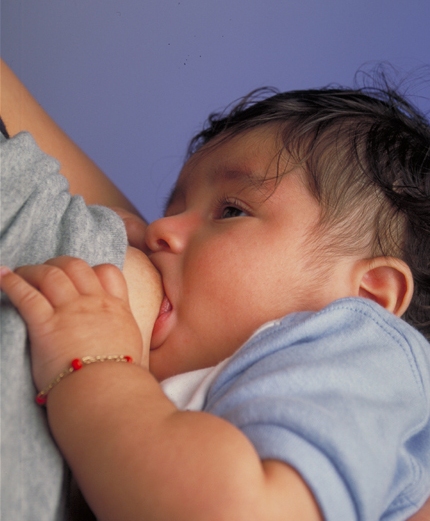|
Hieronymus Mercurialis
Girolamo Mercuriale or Mercuriali ( it, Geronimo Mercuriali; la, Hieronymus Mercurialis, Hyeronimus Mercurialis) (September 30, 1530 – November 8, 1606) was an Italian philologist and physician, most famous for his work ''De Arte Gymnastica''. Biography Born in the city of Forlì, the son of Giovanni Mercuriali, also a doctor, he was educated at Bologna, Padua and Venice, where he received his doctorate in 1555. Settling in Forli, he was sent on a political mission to Rome. The pope at the time was Paul IV. In Rome, he made favorable contacts and had free access to the great libraries where, with sweeping enthusiasm, he studied the classical and medical literature of the Greeks and Romans. His studies of the attitudes of the ancients toward diet, exercise, and hygiene and the use of natural methods for the cure of disease culminated in the publication of hi''De Arte Gymnastica''Venice, 1569). With its explanations concerning the principles of physical therapy, it is considere ... [...More Info...] [...Related Items...] OR: [Wikipedia] [Google] [Baidu] |
Forlì
Forlì ( , ; rgn, Furlè ; la, Forum Livii) is a ''comune'' (municipality) and city in Emilia-Romagna, Northern Italy, and is the capital of the province of Forlì-Cesena. It is the central city of Romagna. The city is situated along the Via Emilia, to the east of the Montone river, and is an important agricultural centre. The city hosts some of Italy's culturally and artistically significant landmarks; it is also notable as the birthplace of painters Melozzo da Forlì and Marco Palmezzano, humanist historian Flavio Biondo, physicians Geronimo Mercuriali and Giovanni Battista Morgagni. The University Campus of Forlì (part of the University of Bologna) is specialized in Economics, Engineering, Political Sciences as well as the Advanced school of Modern Languages for Interpreters and Translators (SSLMIT). Climate The climate of the area is humid subtropical (''Cfa'' in the Köppen climate classification) with Mediterranean features, fairly mitigated by the relative closeness ... [...More Info...] [...Related Items...] OR: [Wikipedia] [Google] [Baidu] |
Athletics (physical Culture)
Athletics is a term encompassing the human competitive sports and games requiring physical skill, and the systems of training that prepare athletes for competition performance. Athletic sports or contests are competitions which are primarily based on human physical competition, demanding the qualities of stamina, fitness, and skill. Athletic sports form the bulk of popular sporting activities, with other major forms including motorsports, precision sports, extreme sports and animal sports. Athletic contests, as one of the earliest types of sport, are prehistoric and comprised a significant part of the Ancient Olympic Games, along with equestrian events. The word "athletic" is derived from the grc, άθλος (athlos) meaning "contest." Athletic sports became organized in the late 19th century with the formation of organizations such as the Amateur Athletic Union in the United States and the Union des Sociétés Françaises de Sports Athlétiques in France. The Intercollegi ... [...More Info...] [...Related Items...] OR: [Wikipedia] [Google] [Baidu] |
Ferdinand I De' Medici, Grand Duke Of Tuscany
Ferdinando I de' Medici, Grand Duke of Tuscany (30 July 1549 – 3 February 1609) was Grand Duke of Tuscany from 1587 to 1609, having succeeded his older brother Francesco I. Early life Ferdinando was the fifth son (the third surviving at the time of his birth) of Cosimo I de' Medici, Grand Duke of Tuscany, and Eleanor of Toledo, the daughter of Pedro Álvarez de Toledo, Marquis of Villafranca, the Spanish viceroy of the Kingdom of Naples. He was made a Cardinal in 1562 at the age of 14, but was never ordained into the priesthood. At Rome, he proved an able administrator. He founded the Villa Medici in Rome and acquired many works of art (including the ''Medici lions''), which he then brought back to Florence with him. Grand Duke When his brother Francesco I de' Medici, Grand Duke of Tuscany, died in 1587, Ferdinando succeeded as grand duke at the age of 38. In many ways, Ferdinando was the opposite of his brother who preceded him. Approachable and generous, he set out to ... [...More Info...] [...Related Items...] OR: [Wikipedia] [Google] [Baidu] |
Girolamo Capodivacca
Girolamo is an Italian variant of the name Hieronymus. Its English equivalent is Jerome. It may refer to: * Girolamo Cardano (1501–1576), Italian Renaissance mathematician, physician, astrologer and gambler * Girolamo Cassar (c. 1520 – after 1592), Maltese architect and military engineer * Girolamo da Cremona ( fl. 1451–1483), Italian Renaissance painter * Girolamo della Volpaia, Italian clock maker * Girolamo Fracastoro (1478–1553), Italian physician, scholar, poet and atomist * Girolamo Frescobaldi (1583–1643), Italian musician * Girolamo Maiorica (c. 1591–1656), Italian Jesuit missionary to Vietnam * Girolamo Luxardo (1821–), Italian liqueur factory * Girolamo Masci (1227–1292), Pope Nicholas IV (1288–1292) * Girolamo Palermo, American mobster * Girolamo Porro (c. 1520 – after 1604), Italian engraver * Girolamo Riario (1443–1488), Lord of Imola and Forlì * Girolamo Romani (1485–1566), Italian High Renaissance painter * Girolamo Savonarola (1452–1498), ... [...More Info...] [...Related Items...] OR: [Wikipedia] [Google] [Baidu] |
Magistrato Alla Sanità
The ( en, "Magistracy of Health") was the office of the Republic of Venice definitively instituted in 1490 to manage public health in the city of Venice and its territories, with specific attention on preventing the spread of epidemics within the maritime republic. The magistracy was among the first health authorities in Europe to institute public inoculation projects to prevent the spread of infectious diseases. Initially composed of three nobles, the magistracy was expanded in 1556 when two nobles were nominated in a supervisory role. The office of the Magistrato alla Sanità was retained until the Fall of the Republic of Venice, during which it was briefly replaced by a health committee and eventually superseded by other magistracies entirely. Organisation In the Venetian government, the term normally referred to a complex magistracy that was formed by the aggregation of individual committees. These could act together but, each having autonomous functions, also separately, ... [...More Info...] [...Related Items...] OR: [Wikipedia] [Google] [Baidu] |
Lazaretto
A lazaretto or lazaret (from it, lazzaretto a diminutive form of the Italian word for beggar cf. lazzaro) is a quarantine station for maritime travellers. Lazarets can be ships permanently at anchor, isolated islands, or mainland buildings. In some lazarets, postal items were also disinfected, usually by fumigation. This practice was still being done as late as 1936, albeit in rare cases. A leper colony administered by a Christian religious order was often called a lazar house, after the parable of Lazarus the beggar. Throughout history In 1592, a lazaretto made of wooden huts was built on Manoel Island in Malta during a plague epidemic. It was pulled down in 1593 after the disease had subsided. In 1643, Grandmaster Lascaris built a permanent Lazzaretto in the same place to control the periodic influx of plague and cholera on board visiting ships. The hospital was subsequently improved over time, and was enlarged during the governorship of Sir Henry Bouverie ... [...More Info...] [...Related Items...] OR: [Wikipedia] [Google] [Baidu] |
Quarantine
A quarantine is a restriction on the movement of people, animals and goods which is intended to prevent the spread of disease or pests. It is often used in connection to disease and illness, preventing the movement of those who may have been exposed to a communicable disease, yet do not have a confirmed medical diagnosis. It is distinct from medical isolation, in which those confirmed to be infected with a communicable disease are isolated from the healthy population. Quarantine considerations are often one aspect of border control. The concept of quarantine has been known since biblical times, and is known to have been practised through history in various places. Notable quarantines in modern history include the village of Eyam in 1665 during the bubonic plague outbreak in England; East Samoa during the 1918 flu pandemic; the Diphtheria outbreak during the 1925 serum run to Nome, the 1972 Yugoslav smallpox outbreak, the SARS pandemic, the Ebola pandemic and extensive ... [...More Info...] [...Related Items...] OR: [Wikipedia] [Google] [Baidu] |
Venice
Venice ( ; it, Venezia ; vec, Venesia or ) is a city in northeastern Italy and the capital of the Veneto Regions of Italy, region. It is built on a group of 118 small islands that are separated by canals and linked by over 400 bridges. The islands are in the shallow Venetian Lagoon, an enclosed bay lying between the mouths of the Po River, Po and the Piave River, Piave rivers (more exactly between the Brenta (river), Brenta and the Sile (river), Sile). In 2020, around 258,685 people resided in greater Venice or the ''Comune di Venezia'', of whom around 55,000 live in the historical island city of Venice (''centro storico'') and the rest on the mainland (''terraferma''). Together with the cities of Padua, Italy, Padua and Treviso, Italy, Treviso, Venice is included in the Padua-Treviso-Venice Metropolitan Area (PATREVE), which is considered a statistical metropolitan area, with a total population of 2.6 million. The name is derived from the ancient Adri ... [...More Info...] [...Related Items...] OR: [Wikipedia] [Google] [Baidu] |
Count Palatine (Imperial)
An imperial count palatine ( la, comes palatinus caesareus, german: Kaiserlicher Hofpfalzgraf) was an official in the Holy Roman Empire with quasi-monarchical ("palatine") powers. In all, over 5,000 imperial counts palatine were created between the 14th and 18th centuries.John Flood (2002), "Neglected Heroines? Women Poets Laureate in the Holy Roman Empire", ''Bulletin of the John Rylands Library'', 84(3): 25–47, at 29. The office was hereditary in perpetuity in the legitimate male line.Paul F. Grendler, The Universities of the Italian Renaissance' (Johns Hopkins University Press, 2002), p. 183ff. History The office originated in the Lombard Kingdom, Lombard kingdom in Italy (c.575–774), where the kings appointed officials with the title ''comes palatii'' (count of the palace) and power to act in the king's absence. The office was retained in Italy under the Carolingian Empire, Carolingians after 774 and under the Ottonians after 961. The Emperor Otto III is known to have appoin ... [...More Info...] [...Related Items...] OR: [Wikipedia] [Google] [Baidu] |
Maximilian II, Holy Roman Emperor
Maximilian II (31 July 1527 – 12 October 1576) was Holy Roman Emperor from 1564 until his death in 1576. A member of the Austrian House of Habsburg, he was crowned King of Bohemia in Prague on 14 May 1562 and elected King of Germany (King of the Romans) on 24 November 1562. On 8 September 1563 he was crowned King of Hungary and Croatia in the Hungarian capital Pressburg (Pozsony in Hungarian; now Bratislava, Slovakia). On 25 July 1564 he succeeded his father Ferdinand I as ruler of the Holy Roman Empire. Maximilian's rule was shaped by the confessionalization process after the 1555 Peace of Augsburg. Though a Habsburg and a Catholic, he approached the Lutheran Imperial estates with a view to overcome the denominational schism, which ultimately failed. He also was faced with the ongoing Ottoman–Habsburg wars and rising conflicts with his Habsburg Spain cousins. According to Fichtner, Maximilian failed to achieve his three major aims: rationalizing the government stru ... [...More Info...] [...Related Items...] OR: [Wikipedia] [Google] [Baidu] |
Breastfeeding
Breastfeeding, or nursing, is the process by which human breast milk is fed to a child. Breast milk may be from the breast, or may be expressed by hand or pumped and fed to the infant. The World Health Organization (WHO) recommends that breastfeeding begin within the first hour of a baby's life and continue as often and as much as the baby wants. Health organizations, including the WHO, recommend breastfeeding exclusively for six months. This means that no other foods or drinks, other than vitamin D, are typically given. WHO recommends exclusive breastfeeding for the first 6 months of life, followed by continued breastfeeding with appropriate complementary foods for up to 2 years and beyond. Of the 135 million babies born every year, only 42% are breastfed within the first hour of life, only 38% of mothers practice exclusive breastfeeding during the first six months, and 58% of mothers continue breastfeeding up to the age of two years and beyond. Breastfeeding has a numb ... [...More Info...] [...Related Items...] OR: [Wikipedia] [Google] [Baidu] |
Hippocrates
Hippocrates of Kos (; grc-gre, Ἱπποκράτης ὁ Κῷος, Hippokrátēs ho Kôios; ), also known as Hippocrates II, was a Greek physician of the classical period who is considered one of the most outstanding figures in the history of medicine. He is traditionally referred to as the "Father of Medicine" in recognition of his lasting contributions to the field, such as the use of prognosis and clinical observation, the systematic categorization of diseases, or the formulation of humoral theory. The Hippocratic school of medicine revolutionized ancient Greek medicine, establishing it as a discipline distinct from other fields with which it had traditionally been associated (theurgy and philosophy), thus establishing medicine as a profession. However, the achievements of the writers of the Hippocratic Corpus, the practitioners of Hippocratic medicine, and the actions of Hippocrates himself were often conflated; thus very little is known about what Hippocrates actually t ... [...More Info...] [...Related Items...] OR: [Wikipedia] [Google] [Baidu] |





.jpg)

